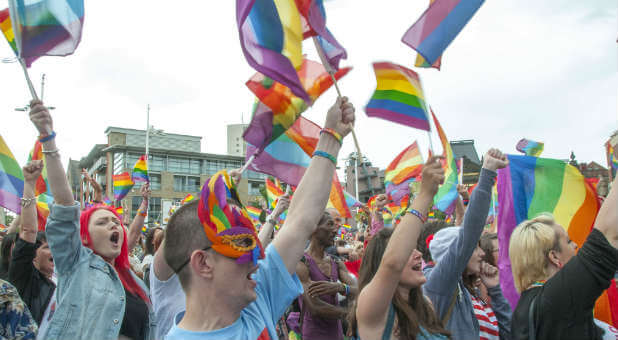A new large, reliable study shows that lesbians, gays and bisexuals are in worse health than heterosexuals.
The National Health Interview Survey examined nearly 70,000 Americans in 2013 and 2014, with an average age of 47.
The organization has been conducting similar surveys since 1957, but this was the first time respondents were questioned about their sexual orientation. The study was published in the Journal of the American Medical Association Internal Medicine.
The number of people identifying as heterosexual totaled 67,150, lesbian: 525, gay: 624 and bisexual: 515.
Gilbert Gonzales of the Vanderbilt University School of Medicine in Nashville and colleagues found that compared to heterosexual women, lesbians were 91 percent more likely to report poor or fair health and twice as likely to report multiple chronic conditions. Bisexual women were also twice as likely to report chronic conditions, like heart disease and breast cancer, than straight women.
Gay, lesbian and bisexual people were also more likely than heterosexuals to report heavy drinking and smoking.
In addition to physical health disparities, the survey also records differences in mental health. According to the survey, psychological distress is also worse in homosexuals, but most severe among bisexuals.
While only 17 percent of straight men reported psychological distress, 26 percent of gay men reported it and 40 percent of bisexual men did.
Similarly, 22 percent of straight women reported psychological distress, while 28 percent of lesbian women did and 46 percent of bisexual men reported it.
Gonzales told Reuters that the reason bisexual people report the greatest psychological distress is probably because they are the least accepted among all the sexual minorities: lesbian, gay, transgender and bisexual.
The JAMA Internal Medicine publication surmises the reason for the diminished health among homosexuals and bisexuals compared to heterosexuals is because of the way they are often treated. Researchers claim these groups, “were more likely to report impaired physical and mental health, heavy alcohol consumption, and heavy cigarette use, potentially due to the stressors that (they) experience as a result of interpersonal and structural discrimination,” they wrote online June 28.
The survey was taken before gay marriage became legal in 2015.
“It will be interesting to see how legal same-sex marriage will affect these health disparities,” Gonzales said.
In a editor’s note published with the study, Dr. Mitchell Katz wrote “Health care professionals can help by creating environments that are inclusive and supportive of sexual minority patients.”
“In caring for people who have experienced bias and discrimination, support is a very potent medicine,” he continued. “It’s important that all our federal surveys begin to collect sexual orientation status and gender identity.”
The link between discrimination and poor health has also been examined among racial minorities. According to Journalist’s Resource, “Studies have consistently found that experiencing discrimination is associated with poorer health outcomes overall, but findings on the specific factors have been mixed. Much depends on the health problem in question as well as different approaches to studying these issues, highlighting the need to further understand existing controversies in the field.” {eoa}
Reprinted with permission from CBN.com. Copyright The Christian Broadcasting Network, Inc., All rights reserved.











































